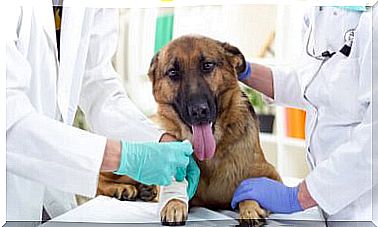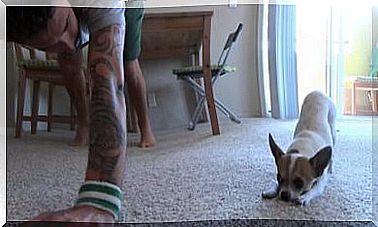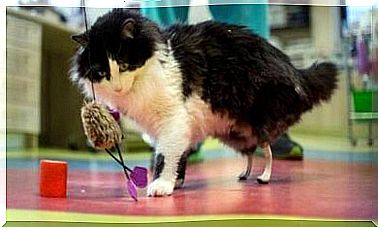Infectious Hepatitis In Dogs: Symptoms And Causes
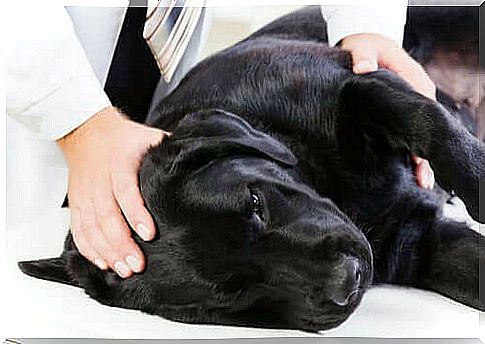
Infectious hepatitis in dogs is a disease that ranges from very mild to fatal cases. There is no treatment for this viral disease, so if your dog is infected, the only thing you can do is keep it under control and get your dog’s immune system to recover.
Young dogs and small puppies are the most at risk, as their immune systems are still developing. The best option for your dog is to vaccinate him against this disease.
There are excellent vaccines available for both large dogs and puppies. To avoid infectious hepatitis in dogs, prevention is the best course of action.
Canine Infectious Hepatitis Symptoms
Symptoms to watch out for are:
- Loss of appetite. If your normally hungry dog stops eating suddenly, it’s a sign that something is wrong.
- Tiredness and lack of energy: the dog appears depressed and dejected.
- Runny eyes and nose and cough.
- Frequent vomiting. You may want to take note of how often he vomits and when he started doing it.
- Swelling around the head and neck area.
- Shiny and cloudy eyes.
- The dog appears continually thirsty.
- He feels severe pain when you touch his stomach.
Types of infectious hepatitis
There are two types or variants of the virus that causes canine infectious hepatitis:
- Type 1 adenovirus (CAV-1) is the most common virus. Attacks the dog’s liver and other vital organs. CAV-1 also causes pathology in wolves, coyotes, bears and foxes.
- Type 2 adenovirus, which causes a contagious infection of the respiratory system that is manifested by a strong cough.
If your dog’s clinical picture appears severe, hospitalization will be the only way to save him. But we reiterate that prevention through regular vaccination is the smartest course of action. It is also available for both types of viruses.
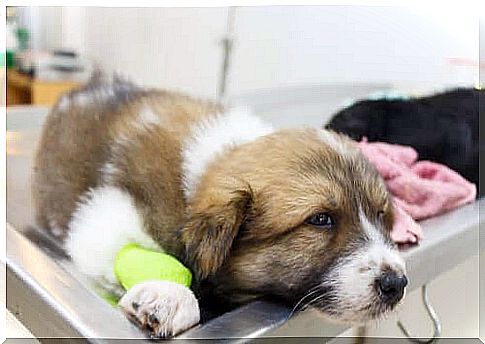
There is no cure for this disease and most dogs will develop immunity from infectious hepatitis without any intervention meaning that over time they will recover on their own. However, it can be a very aggressive disease and can sometimes be fatal, so don’t underestimate it.
Causes
The cause of this disease is the virus known as canine adenovirus . This virus attacks your pet’s liver, spleen, and other vital organs. It poses a particular risk to young dogs and puppies, whose immature immune systems struggle hard to fight this highly infectious disease.
Although it can be contracted anywhere, infectious hepatitis is rare in animals that have been vaccinated. If your dog has had this disease and is cured, be aware that he may still be spreading the virus through urine and other fluids (for example, through a runny nose). So if you have other dogs, make sure they don’t get infected.
This virus is so powerful that it can be present in the dog’s fluids for up to nine months after it has recovered. Keeping the bed, bowls, and even shoe soles clean can help prevent the spread of the virus.
Diagnosis
If your dog exhibits any of the above symptoms, the best course of action is to take him to the vet for a thorough checkup. Sometimes the specialist can confirm the disease with a simple physical exam, but will suggest a blood test to be safe.
Both physical and blood tests will not harm your dog, although it will be best to stay close to him to reassure him. Your vet will look for a drop in white blood cell values and will do other tests to ward off other liver diseases. X-rays and urine tests may also be done.
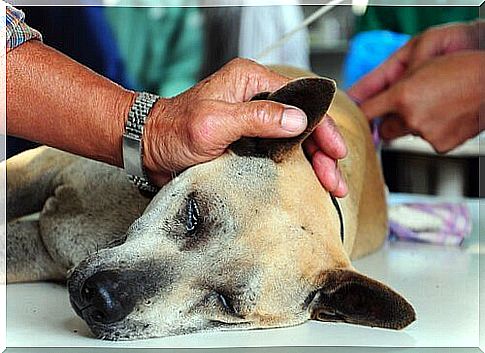
If your dog’s immune system is on alert due to the invasion of the virus, it will show up in blood tests. Your vet will be able to answer all your questions about the disease and how you can help your dog recover.
Treatment
As we explained above, there is no treatment for this viral infection. The dog will receive care for the duration of the disease until his immune system takes control and healing begins. In severe cases, the vet suggests hospitalization and might use IV fluids to reduce dehydration.
Another concern inherent in this disease is secondary infections. Since your dog’s immune system is busy fighting the virus, other viral infections can take over, so it’s best to start a course of antibiotics to protect it.



